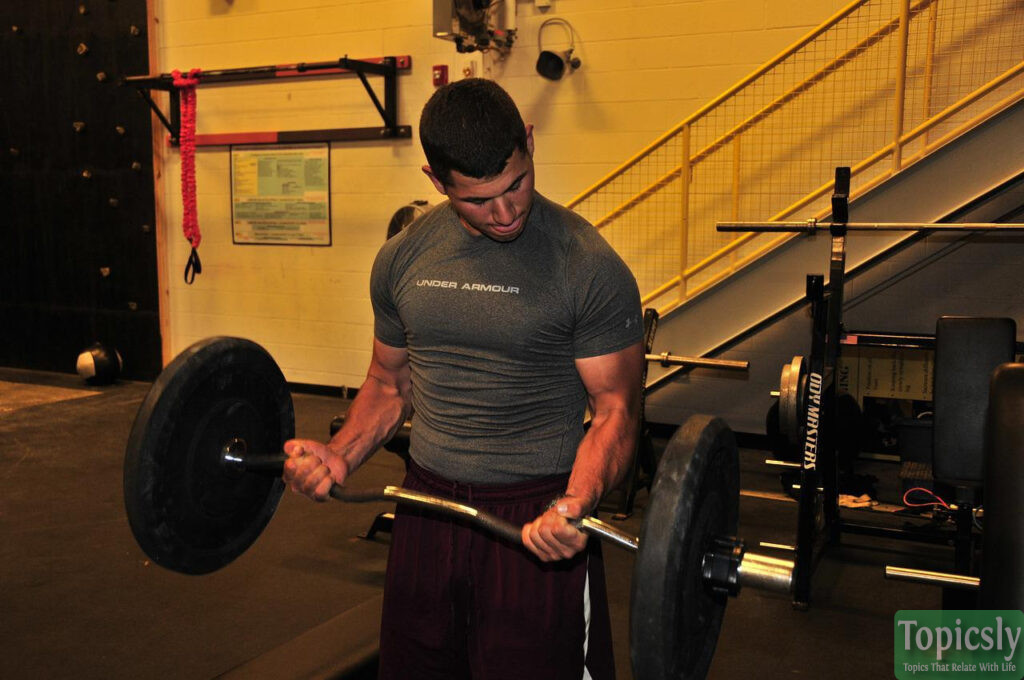Who doesn’t want to build muscle? Muscle is one of the most visible androgenic hormones in the body, which means it substantially impacts physical appearance. Building muscle can help you look better and improve your overall fitness level.

How To Build Muscle – A Complete Beginner’s Guide
Benefits of having muscle and how to build it
Having muscle is beneficial in many ways. Muscle helps you stay strong and healthy as you age. It also enables you to maintain a healthy weight, improves your mood, and gives you more energy.
You can build muscle by doing strength training exercises at least two times a week.
Diet: What to eat and what not to eat to gain muscle mass
To gain muscle mass, you need to focus on eating a healthy and balanced diet. Eating the right foods will provide your body with the nutrients it needs to build muscle while eating the wrong foods can hinder your progress.
Here is a list of what to eat and what not to eat to gain muscle mass:
What to eat:
Protein
You should make sure to include plenty of protein in your diet. Protein is essential for building muscle and can be found in meat, fish, eggs, dairy products, and plant-based proteins such as legumes and soy.
Carbohydrates
Carbs are also crucial for building muscle. Opt for complex carbs such as whole grains, fruits, and vegetables rather than processed carbs like sugary snacks and white bread.
Healthy fats
Fat is not the enemy! It’s essential to include healthy fats in your diet. Healthy fats are vital for keeping you satisfied and helping with hormone production.
Special considerations: veganism, vegetarianism, and building muscle
There are many different diets out there, and more seem to be popping up every day. Among the different types of diets are veganism, vegetarianism, and building muscle.
Each one has its pros and cons, and it can be challenging to decide which is right for you.
Exercise: How to go about weightlifting and strength training to achieve muscle growth.
To achieve muscle growth, weightlifting and strength training are two critical components. By lifting weights, you are essentially breaking down your muscle fibers.
When these fibers rebuild, they become more vigorous and more extensive. Strength training also helps increase bone density, which can help reduce the risk of injuries in the future.
It’s important to note that you need to be consistent with your weightlifting routine to see results. Don’t expect to see changes after just one session!
Rest: Get the most out of your workouts by optimizing your rest time.
To get the most out of your workouts, you need to optimize your rest time. When you work out, you create tiny tears in your muscles. These tears need time to heal so that your muscles can grow stronger.
If you don’t give your body enough time to rest, you won’t see results from your workouts, and you may even injure yourself.
The amount of rest you need depends on various factors, including how intensely you’re working out and how to fit you are.
Generally, aim for at least 24 hours of rest between intense workouts. If you’re starting or aren’t very fit, you may need 48 hours.
More advanced exercisers may be able to workout every other day without any problems.
While resting is important, it’s also important not to sit around all day. You may be tempted to do nothing if you’re taking a break from exercise, but research suggests that doing little or nothing is just as bad for your health as being sedentary.
Supplements: Which supplements are worth taking and which ones aren’t.
When it comes to taking supplements, there are a lot of different opinions on which ones are worth taking and which ones aren’t.
Some people believe that all supplements are helpful, while others think that most are a waste of money. So, what’s the truth?
There is no one-size-fits-all answer to this question, as the supplements that are right for you will vary depending on your individual needs and goals.
However, a few general rules can help you figure out which supplements are worth taking.
For starters, it’s essential to make sure that you’re taking a multivitamin every day.
Most people don’t get enough vitamins and minerals from their diet alone, so supplementation is essential for optimal health.
Other essential supplements include omega-3 fatty acids, probiotics, and antioxidants. It would be best if you also consider taking fish oil supplements.
These supplements have been shown to reduce inflammation and may even help with joint pain, arthritis, and other issues.
If you suffer from anxiety, depression, fatigue, or insomnia, you should take a magnesium supplement daily to help improve your mental health.
Conclusion
To build muscle effectively, it is crucial to understand how muscle tissue grows. Muscle tissue grows in response to stress, and by providing the body with the right stimulus, you can encourage your muscles to grow.
Several factors influence muscle growth, including intensity, frequency, and type of exercise. In addition, diet and nutrition are important factors in achieving your goals. Here are some final tips for building muscle:
- Focus on compound exercises that work for multiple muscle groups at once.
- Train with heavy weights and aim for progressive overload.
- Make sure you’re eating enough protein and carbs to support muscle growth.
- Get enough rest and recovery between workouts.


